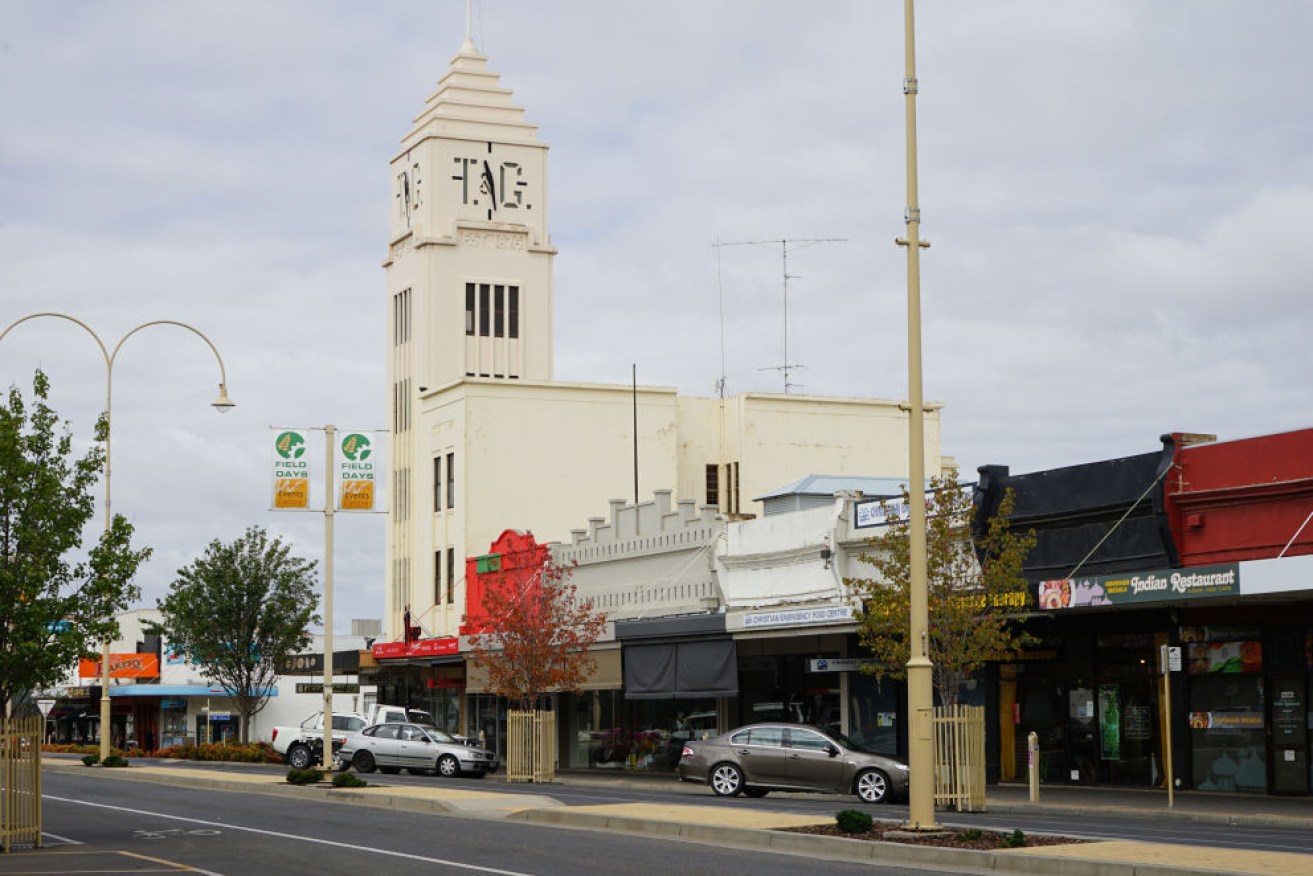‘Everybody’s on high alert’: Small town life in the time of coronavirus

Main streets of regional towns like Horsham, western Victoria, are not immune to the impacts of coronavirus. Photo: Getty
Small-town Australia may seem one step removed from the COVID-19 pandemic, but the fear in our tiny towns is real.
From demands for roadblocks to supermarket cashiers checking IDs to catch busloads of outsiders raiding shelves, regional Australia is reacting in its own way to the coronavirus crisis.
And for some already reeling from the summer’s catastrophic bushfires, the pandemic has been a second hammer blow – smashing locals at a time they had been hoping a revitalised tourism industry would save jobs.
On the east coast of Australia, the pandemic has meant there was very little time to mourn and commemorate the 33 people who died during our ‘black summer’ before the national conversation moved on to the virus.
So far the numbers look positive for regional areas, with data out last week showing more than 135 regions and local government areas were still free of COVID-19.
But while the wide open spaces and fewer people may give the impression of a lower virus threat level, it doesn’t necessarily feel that way on the ground.

Most of Australia’s small towns are located on the eastern seaboard. Source: ABS website
If it’s not the fear of outsiders bringing COVID-19 to the town, it’s the paranoia of not knowing who in your tiny community might be infected.
Killarney mum Nicole Finnigan, a dog groomer and hobby farmer who lives 30 kilometres out of town, said her outback Queensland community of 954 people was on “high alert”.
The Southern Downs region has had three confirmed cases of COVID-19, including a butcher who brought back the virus from an infected birthday party in Noosa.
As the nation prepared for lockdown, the town’s only grocery store – the Killarney Co-Op – closed its doors indefinitely, servicing clients only through pick-ups or online delivery.
Mrs Finnigan said on top of the inconvenience of business shutdowns – and having to repeatedly journey to town to collect grocery items because of purchase limits – there was a sense of fear about where the next infection could spring from.
But it was balanced against knowing there were worse places to be.
“My parents live on the north side of Brisbane and my sister works in healthcare so I don’t worry about myself as much as I worry about them,” she said.
“If I lived where they do I would be a hermit and never leave the house.
“Thank God we live where we live cos the kids can still go outside and ride horses and ride bikes.”

Mrs Finnigan’s daughter can still enjoy the great outdoors on their hobby farm near Killarney. Photo: Nicole Finnigan
David West, the mayor of MidCoast Council that encompasses popular beach towns in NSW, said he had fielded calls from locals who wanted roadblocks.
Sections of the community were up in arms and informing police about visitors in holiday houses, potentially bringing more COVID-19 to an area that has a high proportion of vulnerable elderly.
MidCoast had 39 confirmed cases of COVID-19 on April 14, making it a bit of a regional hotspot.
“I think there is a considerable angst – not fear – but a heightened sense of security about what’s around you and what can influence you,” Cr West said.
“There is a fear of people bringing the virus to the area.
“Two of our larger coastal towns in particular wanted barriers up, but that is a matter for the police, not for council.
“I think the major fear is that if we had an outbreak, the hospital wouldn’t be able to cope.”
The 74-year-old Cr West has been working from his rural home with his Jack Russell, and babysitting two rabbits.
“From my perspective I would like to show our community we will get through this. We live in God’s country with beautiful mountains, lakes and rivers and we will come back.”

Residents of Diamond Beach, on the NSW MidCoast, are upset about visitors staying at holiday homes. Photo: visitnsw.com
Communities are also counting the huge loss of cancelling major events, agricultural shows and festivals, many of which are synonymous with regional towns and their biggest annual drawcard.
In the picturesque Victorian goldfields town of Clunes, population 1426, the Booktown Festival that would normally attract 20,000 people has been called off, harming its ability to fund next year’s event.
Clunes Tourism Development Association president Steve Hunter said the loss of this one event had a greater economic impact than the coronavirus shutdown.
“The void that has created – missing that one weekend event – has been a bigger risk to the financial viability of many businesses than coronavirus,” Mr Hunter said.
“In terms of trade we have been bruised badly.”

The Clunes Booktown Festival, which usually draws 20,000 people to the Victorian town, will not go ahead this year. Photo: Facebook
The loss of these gatherings has also wiped out much social contact, especially for those who aren’t tech savvy.
Regional Australia Institute CEO Liz Ritchie said the first survey of people’s views had found social isolation and loneliness were among their greatest anxieties.
There were also concerns about job losses, business closures and not understanding enough about technology to start an online trade.
“Some of these communities have been through drought and bushfires and now a triple whammy and they’re on their knees not knowing how they will get through,” Ms Ritchie said.
Regional Australia is tipped to re-open before the major centres but she said that “remained to be seen”.
“If regional Australia is open, what kind of open? Where will people be travelling to? The risk of contamination would be hard to monitor,” Ms Ritchie said.
“One of the greatest fears is that there may be a second emergence of this.”








